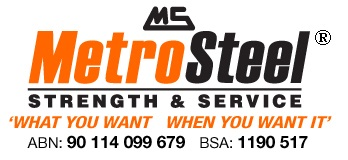Most people when they think of stainless steel consider it a material that is super shiny, super strong, and never goes rusty. While the first two descriptives are true, in reality stainless steel can rust. The word “stainless” doesn’t mean a material that is free from stains or that it’s impossible to stain it, it simply means that it stains less. In the case of stainless steel, it means that when compared to other metals or alloys, stainless steel has more resistance to corrosion. Alloy wheels or carbon wheels simply aren’t in the same league as stainless steel wheels when it comes to their ability to resist rust. But when does stainless steel rust and why?
Aggressive conditions
While we’ve just told you that stainless steel corrodes, it’s important for you to know that stainless steel doesn’t rust in ordinary atmospheric conditions or in the water. In other words, specific conditions which are conductive for corrosion are the cause of stainless steel turning rusty. Therefore in those types of hostile environments, we’d advise against using basic forms of stainless steel. To ensure that a stainless steel structure or application remains unscathed, unharmed, and intact in these potentially harmful conditions, it’s best to use highly alloyed stainless steel.
Resistance to corrosion is quantitative
In essence, stainless steels work pretty well in most environments and are largely resistant to corrosion. However, each type of stainless steel has a certain level of resistance to corrosion and
once that limit has been crossed, rust will eventually form on it. This limit is determined by what has gone into its manufacture in the first place. In other words, the limit of resistance depends on its constituent elements. As a result, different grades of steel will react differently when left in the sort of environment which aids corrosion. It’s not just the grade of steel that can be used to judge its level of corrosion resistance. The workmanship and detailing that goes into each and every stainless steel also plays a big part in deciding how vulnerable the steel will be to staining and corrosion.
Corrosion mechanisms
Stainless steel can be susceptible to certain localised corrosion mechanisms which can be divided into 6 categories:
-
Pitting – This takes place in stainless steel that is exposed to an environment where chloride is present.
-
Crevice – This is another form of corrosion that is caused by oxygen levels dipping in a crevice. It shouldn’t present too much of a problem except if the stainless steel is in a stagnant solution where chlorides could gather.
-
Stress corrosion cracking – Tensile stresses combined with certain environmental conditions can result in stress corrosion.
-
Bimetallic corrosion – galvanic (bimetallic) corrosion can take place if dissimilar metals within a common electrolyte come into contact with each other such as stainless steel rusting in the rain.
-
General corrosion – If stainless steel has a pH value lower than 1 then general corrosion occurs.
-
Intergranular attack – When an austenitic stainless steel is heated to around 450-800°C the carbon that’s present in the steel turns into grain boundaries which cause corrosion.
So now you know what causes stainless steel to rust, how do you avoid it happening?
-
Do not use force when scrubbing your stainless steel appliance
-
Keep away from detergents which contain chlorides such as fluoride, iodine and chlorine
-
Avoid using steel wool on products made from stainless steel. This is because steel wool leaves behind particles on the appliance which contain iron and could therefore trigger corrosion.
-
Never use alcohol based cleaners as they’ve been known to remove the chromium oxide layer.
Using ordinary soap for gentle cleaning is sufficient to keep your stainless steel appliance both stain and rust free.
All in all, purchasing a stainless steel product is a good idea because it’s less likely to stain or rust. Provided you remember the above advice, you’ll never regret your decision.
If you need help in deciding which type of stainless steel to use for your next project, then the experts here at Metro Steel will be only to pleased to help. Meanwhile if you have any questions regarding stainless steel please feel free to contact us on 07 3204 1000.
 Talk to an Expert (07) 3204 1000
Talk to an Expert (07) 3204 1000 Working Hours - Mon – Fri 7:00 AM – 4:00 PM
Working Hours - Mon – Fri 7:00 AM – 4:00 PM